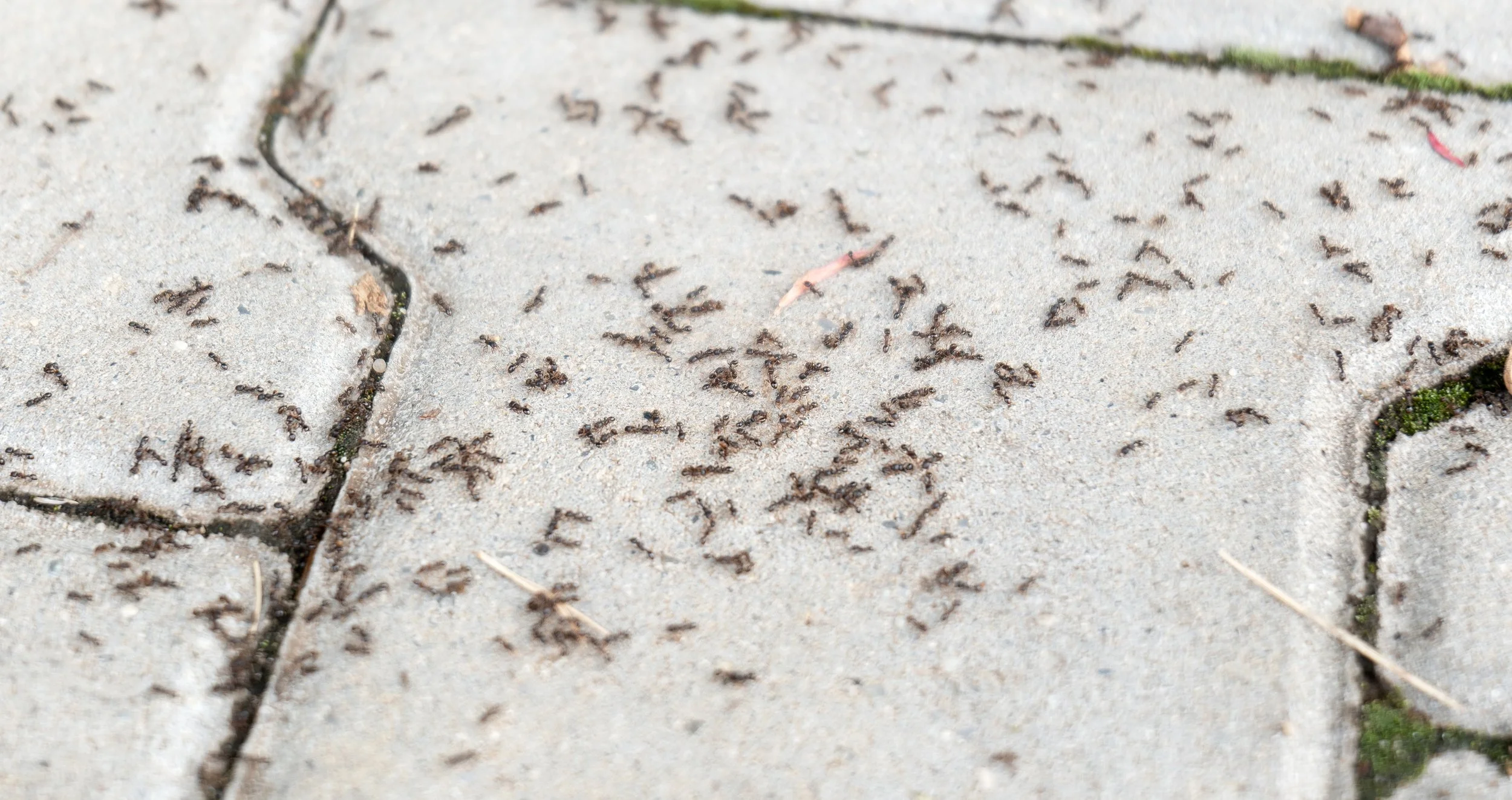How to Treat and Prevent Pavement Ant Infestations
Identifying Pavement Ants
Although many people think an ant is just an ant, pavement ants have a distinctive appearance that makes them easier to identify. Typically, pavement ants are brown, but their coloring can vary from reddish-brown to dark brown and even black. They are also extremely tiny; a full grown pavement ant is only about 1/8 inch long. With a magnifying glass, you can see the features of a pavement ant up close, which include:
A pair of nodes on the thorax, which is the body part between the head and the abdomen
Parallel lines that run across both the head and thorax
The pedicil, the body part that connects the thorax and abdomen, is made up of two segments
Pavement ants have a tiny stinger on the last segment of their bodies, but it isn’t strong enough to hurt people
Reproducing ants, called swarmers, are twice the size of the other worker ants and have wings
With a little practice, you’ll be able to identify pavement ants from other species of ants.
Where To Find Pavement Ants
As their name suggests, pavement ants are most often found in outdoor paved areas such as sidewalks, driveways, patios, parking lots, and other concrete surfaces. However, they can also invade inside of homes, usually finding their way in through cracks and crevices in concrete surfaces such as foundations or slabs, as well as door jams and other tiny gaps. This is why getting rid of pavement ants usually requires the expertise of pest control services.
Like other species of ants, pavement ants like warmth and moisture, so you’re most likely to find them in places around your home where there is humidity and warmth, including:
Rooms that tend to be higher in humidity, such as kitchens and bathrooms
Close to heat sources, including walls and insulation near hot water lines, or close to air vents, stoves, and other sources of warmth
On the walls and floors near exterior doors
Anywhere food may be spilled or easy to find, such as kitchen counters and cabinets, near trash cans, and inside the pantry
In order to survive indoors, pavement ants need to find sources of food containing protein or sugar, so they are usually lurking in places where nourishment is easy to find. Pavement ants are especially attracted to nuts, cheese, honey, jam, and baked goods such as bread, crackers, and cookies. Additionally, they like oils, grease, butter, pollen, plant juices, and pet food. If all else fails, pavement ants will eat garbage and even other insects.
How To Get Rid Of Pavement Ants
If pavement ants are living inside your home, the most effective way to get rid of them is to find and kill the queen ant. This is usually accomplished by setting up specific types of ant bait stations in places that are out of reach of children and pets. Once ants find the trap, they take the toxic bait home to the other ants, killing the queen as well as the rest of the ant colony. When pavement ants are outside of your home, your pest control technician may treat your lawn and foundation with an appropriate outdoor insecticide.
Homeowners can make their homes less vulnerable to ant and other pest infestations by cleaning up the kitchen right after a meal, storing food in the refrigerator and airtight containers, not leaving fruit out on the counter, keeping pet food covered, and taking out the garbage daily.
How To Prevent Pavement Ant Problems
Additional strategies that can be used to treat and prevent pavement ant infestations include treating the exterior perimeter of your home with an appropriate insecticide that will help prevent the ants from entering your home in the first place. Seal cracks and gaps all around the exterior of your home where ants – and other pests – can get in. Common entry points for pavement ants include windows, doors, and openings around air conditioning units, attic vents, and hot water heaters. Finally, reduce the moisture that attracts and feeds pavement ants. Keep your gutters clear and free of clogs, redirect downspouts away from your home, and rake soil or wood chips away from your home’s foundation.
If you need additional help, Varsity can carefully examine your home and provide personalized support to help eradicate and prevent pavement ant infestations in your home.
Get Rid Of Pavement Ants In Phoenix
Eradicate pavement ants and other pests with the help of a trusted team of pest control technicians in Arizona. Varsity Termite and Pest Control is a top rated pest control service with extensive experience eradicating and preventing ants and other pests throughout the Valley. We utilize pest control methods that are natural and safe for families and pets. Schedule your consultation with us today and get your home back!

